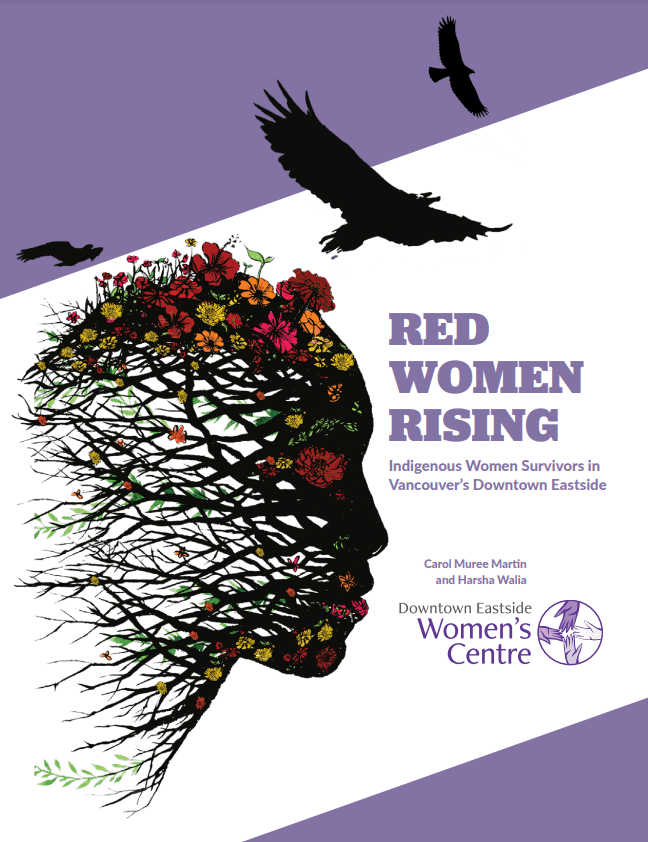32 search results
for
Homeless & housing insecure people
Eliminating structural violence against Indigenous women and girls
Recommendation 3: Increased state enforcement alone cannot eliminate violence against Indigenous women and girls because structural violence is connected to individual acts of male violence. A comprehensive national-level integrated action plan to eliminate violence against Indigenous women and girls must address all the socio-economic factors impacting Indigenous women’s, girls’, trans and two-spirit’s safety including equitable access and self-determination over land, culture, language, housing, child care, income security, employment, education, and physical, mental, sexual and spiritual health.-
Category and theme:
Audience:
Groups affected:
Location of recommendation:
Recommendation 12:
End the criminalization of homelessness by eliminating bylaw infractions and criminal charges for sleeping or tenting in public spaces, and end the displacement of tent cities.
-
Category and theme:
Groups affected:
Location of recommendation:
Recommendation 13:
Change government definitions of social housing and affordable housing to mean rates that are affordable to people on social assistance, and rents that are income-geared not market-geared.
-
Category and theme:
Groups affected:
Location of recommendation:
Legislative reform to reduce Indigenous women’s manufactured vulnerability
Recommendation 14: Amend the provincial Residential Tenancy Act to cover all housing and to strengthen tenants rights. Amend the provincial Human Rights Code and Residential Tenancy Act to make it illegal to discriminate on the basis of social condition including health status and drug use.-
Category and theme:
Audience:
Groups affected:
Location of recommendation:
Guaranteed public services
Recommendation 28: Provide a safe and affordable home for every Indigenous woman on and off reserve. This housing must be with long-term security of tenure, independent of matrimonial or common-law status, and self-contained units of at least 400 square feet with bathrooms and kitchens. Housing must also consider specific needs such as mobility access, space for children and extended families, and ceremonial practices. Highest priority for social housing should be given to Indigenous women fleeing violence and Indigenous mothers at risk of child apprehension.-
Category and theme:
Audience:
Groups affected:
Location of recommendation:
Recommendations for safe and affordable housing for Indigenous women in the DTES
Recommendation 89: The Definition of Indigenous homelessness in Canada should form the basis of all policies on Housing and homelessness with appropriate solutions to homelessness that integrates land, culture, belonging, and kinship networks.-
Category and theme:
Audience:
Groups affected:
Location of recommendation:
Recommendations for safe and affordable housing for Indigenous women in the DTES
Recommendation 90: Comprehensive federal, provincial, and municipal Indigenous Housing policy framework to specifically address Indigenous homelessness.-
Category and theme:
Audience:
Groups affected:
Location of recommendation:
Recommendations for safe and affordable housing for Indigenous women in the DTES
Recommendation 91: Change government definitions of social housing and affordable housing to mean rates that are affordable to people on social assistance, and rents that are income-geared not market-geared.-
Category and theme:
Groups affected:
Location of recommendation:
Recommendations for safe and affordable housing for Indigenous women in the DTES
Recommendation 92: Funding initiatives to end homelessness must be more inclusive of Indigenous women. Implement the existing recommendations of Homes 4 Women and Women’s Shelters Canada on making homeless initiatives and funding structures more gender-equal.-
Category and theme:
Groups affected:
Location of recommendation:
Recommendations for safe and affordable housing for Indigenous women in the DTES
Recommendation 93: Federal funding for homelessness needs to go beyond Housing First initiatives to better suit the diverse needs of Indigenous women. Housing First funding must also have less eligibility criteria and longer timelines.-
Category and theme:
Audience:
Groups affected:
Location of recommendation:
